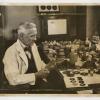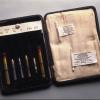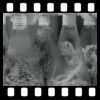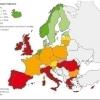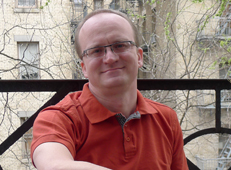When humanitarianism and patriotism collide
Fungal Institute Baarn
Fungal Institute Baarn, by Polygoon-Profilti (producer) / Netherlands Institute for Sound and Vision (curator), is licensed under Creative Commons - Attribution-Share Alike.
During the Second World War, news of the "wonder drug" penicillin was also noted by Europeans on the continent, much of which was occupied by Germans.
How the news reached Dutch scientists is unclear. Some believe that it literally floated from the sky in the summer of 1943 in pamphlets dropped by British bombers, while others argue that the news was broadcast by Radio Oranje, the station of the Dutch government in British exile. However the news came, the Dutch Central Bureau of Fungal Cultures (Centraalbureau voor Schimelcultures, or CBS) came to play a central role in the drug's development.
In 1940, there were more than eight thousand different types of fungi in the CBS's collection, some twenty times more than either America or Britain had at the time. Led by Professor Johanna Westerdijk, the CBS provided penicillium strains to researchers in Delft, who, working in secret, actually obtained an active antibiotic that they called Bacinol.
Westerdijk also supplied strains to neutral Sweden and "the occupier," Germany. The last case is still a subject of debate. Some researchers believe that while fulfilling orders for Germany, Westerdijk supplied strains that were unable to kill bacilli, while others claim that she had no choice and had to supply what was asked.
What cannot be questioned is Westerdijk's devotion to preserving the CBS collection. She opposed attempts to transfer it to Germany and, in the final weeks of the war, she and her colleagues "even shared their food with the equally ravenous fungi."
 Previous Story
Next Story
Previous Story
Next Story
How to cite this page
Slawomir Lotysz, 'When humanitarianism and patriotism collide', Inventing Europe, http://www.inventingeurope.eu/governance/when-humanitarianism-and-patriotism-collide
Sources
- Faasse, Patricia. In Splendid Isolation: A History of the Willie Commelin Scholten Phytopathology Laboratory 1894-1992. Amsterdam: KNAW Press, 2008.
- Burns, Marlene. The Development of Penicillin in the Netherlands 1940-1950: The Pivotal Role of NV Nederlandsche Gist- en Spiritusfabriek. University of Sheffield, 2005.





